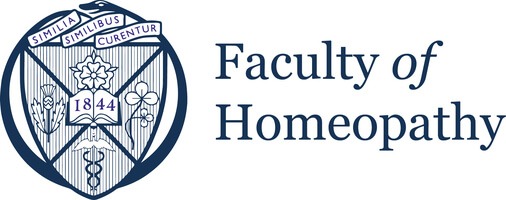Whether it's increasing your energy levels, improving your skin complexion, or boosting your immune system, glutathione is the go-to supplement for many seeking a healthier and more vibrant life.
In this blog, we'll explore everything you need to know about this amazing molecule so that you can make an informed decision about how it can help you reach your health goals.
So what are you waiting for? Let's start the journey of discovering glutathione and how it can benefit us!
Glutathione (GSH) is a powerful antioxidant that helps to protect cells from the damaging effects of oxidation, radiation and toxic substances.
It comprises three amino acids: glycine, glutamic acid, and cysteine. These three molecules form a strong bond to create an active molecule that can fight off free radicals and repair damaged cells.
While glutathione exists naturally in the body, it can also be taken as a supplement or in food sources to increase levels.
Research suggests that increased glutathione levels may lead to better overall health and increased resistance to stress and illness.
Glutathione plays an important role in the body’s ability to fight off disease, reduce inflammation and detoxify toxins from the body.
Glutathione works by repairing damaged cells caused by oxidative damage or toxicity when our systems become overwhelmed by external or internal factors such as poor nutrition, sunburns, smoking cigarettes, alcohol consumption and drug use.
It also helps support a healthy immune system as well as aiding in skin health and keeping organs functioning properly.
Glutathione has also been linked with improved cognitive health due to its role in slowing down mental decline.
Glutathione is an essential molecule found in every body cell, and its primary function is to keep cells healthy by protecting them from oxidative stress.
Oxidative stress can be caused by numerous environmental factors, such as exposure to ultraviolet light, air pollution, physical or emotional stress and certain medications.
It has been linked to many physiological processes within the body, as well as a wide range of health benefits.
It is important to note that while Glutathione can be taken in supplement form, it can also be found naturally in certain foods such as:
Some benefits associated with increasing Glutathione include:
-Improving immune system response
-Improvement in cognitive performance
-Reducing inflammation
-Supporting healthy aging
-Promoting wound healing
-Providing free radical scavenging activity against disease causing agents
-Facilitating detoxification of heavy metals from cells
-Protecting nerve cells against oxidative damage
Glutathione is one of the most powerful antioxidants in the human body. It helps to neutralize free radicals and heavy metals that can cause damage to cells and tissues.
Glutathione is also involved in detoxifying certain chemicals, aiding with nutrient metabolism and recycling other antioxidants, such as vitamins C and E. This vital compound helps support immunity, reduce inflammation and lower oxidative stress.
It’s important to consume foods that are high in glutathione if you want to maintain your health. Here are some of the best sources:
Fruits – Strawberries, apples, oranges, mangos, peaches, kiwis, avocados and cantaloupe
Vegetables – Broccoli sprouts (raw), spinach, kale and other green leafy vegetables
Nuts – Almonds, walnuts and peanuts
Grains – Bran (wheat particularly), oats and quinoa
Dairy – Milk products like yogurt or kefir
Meat – Beef liver (organ meat)
Eggs – Chicken eggs
Legumes - Garbanzo beans (chickpeas), soybeans
These food choices are packed with active compounds which can help improve glutathione levels in the body.
You can also look for dietary supplements that are specifically designed to increase levels of glutathione. Some supplements contain preformed glutathione molecules while others contain ingredients that help your body produce more of its own natural glutathione stores.
Glutathione is a naturally occurring compound in the body that is essential for many bodily functions. A drop in glutathione levels can cause a number of health issues and can affect detoxification processes, immune response, metabolic regulation and more.
Common signs of a deficiency include:
-Fatigue: Glutathione helps to deliver energy to cells, so when your levels are too low, you may experience chronically low energy levels.
-A weakened immune system: Glutathione is a powerful antioxidant in the body, used to protect healthy cells from damage and aid in the detoxification process. Low levels of glutathione make it difficult to fight off infection and illnesses.
-Brain fog: Deficiencies over time can lead to cognitive decline, impaired thinking, brain fog, memory loss and other mental health issues.
-Digestive distress: Low glutathione levels mean less protection for digestive tissues, leading to increased gut inflammation and slow digestion of foods. This could cause chronic constipation or diarrhoea, as well as painful gas or bloat after meals.
-Skin conditions: Skin health often suffers when there isn’t enough glutathione in the body, since it’s needed for proper moisturization and hydration at a cellular level. The skin may look dull or dry if there are insufficient levels present.
-Weight gain/weight loss: Without enough glutathione available, your internal systems don’t function as optimally, which may lead to an inability to shed excess weight or an inability to put on pounds (if underweight).
Glutathione (GSH) has been labelled the “master antioxidant” because it has such wide-reaching effects on the body.
Glutathione is found in the cells of plants, animals and microorganisms and plays an essential role in neutralizing damaging free radicals.
Without glutathione or other antioxidants, damaged proteins can accumulate in tissues, leading to cell death. Increasing glutathione levels can help protect against damage and improve overall health.
One way to boost your GSH levels naturally is through dietary changes. Eating plenty of raw fruits and vegetables will help provide your body with vitamins E (alpha-tocopherol) and C (ascorbic acid), two key components needed for effective antioxidant activity.
Additionally, consuming foods high in sulphur, such as garlic, onions, eggs, and cruciferous vegetables like kale or broccoli, can also be beneficial for GSH production as sulphur boosts GSH supply within cells by providing the required sulfhydryl groups and cysteine needed for GSH production from its precursors—glutamate, glycine and cysteine. Other sources of natural antioxidants include nuts like walnuts or almonds, turmeric and ginger root.
Getting adequate sleep is another important factor that can influence glutathione levels, as it helps reduce oxidative stress associated with poor quality or inadequate sleep, which can negatively affect the body’s ability to produce glutathione.
Exercise or physical activity have also been shown to promote increased blood flow through providing oxygen delivery that helps support elevated antioxidant activity within cells as well as lowers inflammation associated with regular exercise which may further boost GSH production in cells [2].
Lastly, oral supplementation has been used to increase an entire group of antioxidants such as polyphenols found naturally in berries [3], along with other supplements specifically formulated to support cellular glutathione levels by allowing direct absorption into cells [4], however, always consult your physician prior to starting any new regimen or incorporation any supplement intake into your regimen either prescribed by a doctor or bought over the counters ones due their guidance so that you are able to equip yourself best against disease-causing agents found naturally around us on daily basis
When taken in recommended amounts, glutathione is generally considered to be safe without significant side effects.
However, some people may experience mild adverse reactions, such as skin rashes, nausea or itching. Some other potential side effects include the reduced effectiveness of certain chemotherapy drugs and an increased risk of bleeding when combined with anticoagulant medications.
This supplement can interfere with other medications that you take regularly; consult with your doctor before starting any glutathione supplementation.
It's also important to note that long-term use or higher doses may lead to more serious side effects. You should always consult your doctor before taking nettle leaf extract for medicinal uses to avoid any potential negative impacts on health and drug interactions from occurring.
Recent research has found evidence of the role glutathione plays in many serious health conditions, ranging from cancer and HIV/AIDS to Parkinson’s and Alzheimer’s disease.
This multifaceted compound helps regulate a wide range of metabolic processes, and its potent antioxidant activity can benefit numerous aspects of human health.
Glutathione is known to help protect against damage caused by toxins, ultraviolet radiation and free radicals that can lead to inflammation, cellular mutation and cancer.
It also works to protect neurons in the brain from any damage associated with conditions such as Parkinson’s disease, Alzheimer’s disease and multiple sclerosis.
Adequate levels of glutathione may help sustain healthy immune function by fighting off infection-causing bacteria, viruses and parasites.
The antioxidant properties of glutathione have been shown to positively affect chronic diseases like HIV/AIDS by reducing oxidative stress on the body.
Glutathione has also been studied for its potential anticancer effects; laboratory tests revealed that it has a protective effect against carcinogens, including carcinoma of the breast, colon and lung as well as leukemia cells.
This powerful antioxidant could be beneficial in aiding recovery from major illnesses or managing long-term conditions long-term illnesses like diabetes or cardiovascular disorders.
Research into potential therapeutic uses of glutathione is ongoing, but most studies suggest that having adequate levels through either diet or supplementation may bring significant health benefits.
As we’ve seen in this guide, glutathione is an incredibly important antioxidant that plays a key role in protecting the body from damage caused by toxins and chemical exposure.
It helps to protect cells from free radical damage, improves mitochondrial activity and significantly boosts the immune system.
The most effective way of increasing glutathione levels is to combine regular dietary intake of foods that are rich in glutathione precursors like selenium, cysteine and glycine with targeted supplementation.
In particular, supplementing with N-acetylcysteine (NAC), alpha lipoic acid, curcumin and the amino acids taurine and methionine have all been found to be beneficial for increased glutathione production.
Glutathione IV drips are also available for individuals who need an effective way to supplement their glutathione levels.
It's also important that you take measures to reduce oxidative stress as much as possible by improving your diet, getting regular exercise and addressing lifestyle factors such as poor sleep or alcohol abuse.
By taking Glutathione can therefore be used regularly to maximize well being and prevent illnesses before they even develop! Along with a healthy lifestyle, supplementing with Glutathione will put your body in the best position for optimal health.
However, you should consult our doctor before taking glutathione supplements.

Consultant in General Internal Medicine (GMC reg. number: 7541548) and Specialist in Complementary Cancer Care
MBBS, MRCIM (Spain), MSc Homeopathy, MFHom, Master practitioner in Ericksonian Hypnotherapy and Neurolinguistic Programming, MSc in Nutrition
Integrated medicine Doctor and Holistic Medicine Practitioner



